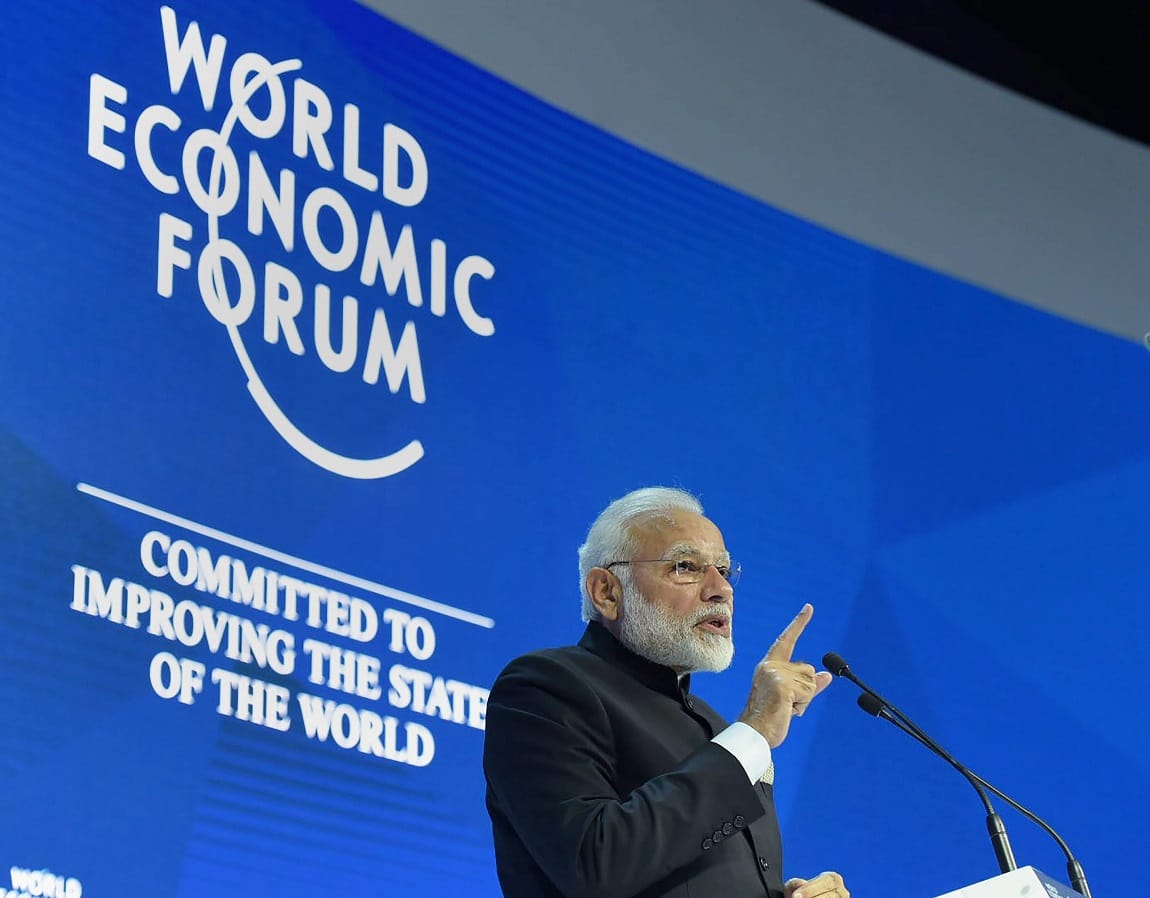The key takeaway from PM Modi’s Davos speech is his highlighting data as the new currency of global power, probably the first time an Indian PM has done so.
Davos: Like heads of governments or states usually do at Davos, Prime Minister Narendra Modi’s speech at the opening plenary was crafted carefully to avoid controversies, or even any big headlines. There were, however, significant messages you reflected on carefully.
In my quick interpretation and analysis, a very shrewdly veiled criticism of Donald Trump and China was evident. But very careful.
The most important statement, in my view, was that globalisation is shrinking and is in danger with rising protectionist tendencies even among big economic powers. They are erecting tariff and non-tariff barriers, threatening the global economic system and supply chains, he said.
This, and the reference to the reversing of bilateral and multilateral trade agreements were directed at Trump and tangentially at China. An Indian prime minister making a strong pitch for globalisation is significant, although we need to wait and see what impact it will have among the protectionists within his own party and the RSS.
Listing climate change as the number one global threat and highlighting the unwillingness of better endowed countries to help poorer ones balance global warming with necessary development was directed at the big economic powers too, but especially at climate-change deniers like Trump. Let’s see what Trump says on climate change later in the week.
China got a mention without being named. Modi spoke of India’s approach of helping other countries unselfishly without coveting their assets or resources. The Chinese, on the other hand, are acquiring roads, ports, airports and mineral assets.
The prime minister mentioned terrorism in passing, deprecated the tendency of seeing some terrorists as good and others as bad, but specifically stated that he did not want to hold forth on that much longer.
A most interesting takeaway is his highlighting data as the new currency of global power. He who controls the data will control the world he said. Now, we can guess and debate whether he was referring to Facebook and Google, or the countries which host the giant servers, or the Chinese building their own, or all of them.
I can’t be a hundred per cent sure because I haven’t kept track of the speeches of all our prime ministers in the past 20 years, so please do correct/update me if I am wrong in saying that it is the first time an Indian prime minister has put data on the table as the number one global currency of power.
I also cannot figure how that will be seen by the passionate and vocal anti-Aadhaar community, and how they will respond.







Data has become the final below to our decade old Public Fund loot Siphoning Industry and AADHAR is the deadly punch. Now all the Fund siphoning shops will close and you will see more noise by anti Aadhar lobby of GUILT RIDDEN CONVENT EDUCATED INDOPHOBIC BLACK ENGLISHMEN
China is not only the largest trading nation, it is also a repository of surplus capital and project execution capabilities. That fits neatly into OBOR / BRI, which President Xi is using as his signature contribution to the continuing rise of China and his place in its modern history. Geopolitics and economics are reinforcing each other in this potentially transformative initiative. Some early investment forays, like $ 8 billion in Sri Lanka, have not played out well. Whether $ 65 billion in CPEC will be a great success remains uncertain. Doubtless, the Chinese, led by their bankers, and recipient countries will do their sums carefully, make changes and modifications as the projects progress. One honestly believes India could benefit by joining BRI and forging a more cooperative partnership with China. Indian diplomacy needs to think through this relationship very deeply, make major changes of mindset.
Ha, ha, great observation. Data as the instrument of ‘VARCHASVA’ (absolute power / domination) was loud and clear, and must have caused adrenaline rush amongst the budding data analytics community of India. That the PM has spotted a gold mine in data has been very evident for the past few months in Aadhaar push. However, what was also very noticeable was that he failed to mention that the current Indian establishment, which he heads, not only acknowledges the power of BIG data but is also responsible enough to consider enactment of data protection laws in line with some of the best in the West, such as the European Union; that the STATE will neither be the Orwellian ‘BIG BROTHER’ nor make any effort to monetise personal data of its citizens, just because it has a billion odd records.